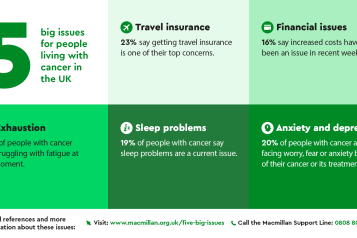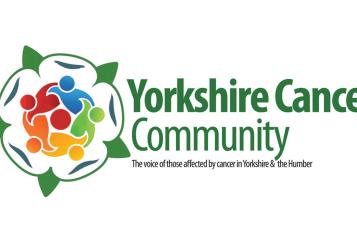People in Bradford talk about cancer in their own language to help save lives

More than 100 people from black, Asian and minority ethnic communities whose first language is not English have joined in the Cancer Research UK – Talk Cancer workshops to talk about their health, how to reduce cancer risk and the importance of spotting cancer early with the help of specialist interpreters.
This is the first project of its kind with NHS Bradford District and Craven Clinical Commissioning Group (CCG) working in partnership with Cancer Research UK to offer interpretation services so that people can have conversations about cancer in their own language.
Cancer Research UK’s cancer awareness trainers lead the interactive three-hour workshops and the interpreters, provided by Enable 2, have received training to help them deliver the programme in partnership with the trainers.
Dr Helena Rolfe, a local GP and cancer lead at NHS Bradford District and Craven CCG said: “Following on from the successful and well evaluated Talk Cancer sessions held in 2019 with health and care staff and voluntary and community sector colleagues, our CCG set out to explore ways to adapt the scheme to ensure it would benefit people living in some of the most deprived areas of Bradford.
"Improving the health of our population is vital and sharing information about illnesses that could affect them or their families is important.
“The NHS Long Term Plan is committed to increasing the number of cancers detected early – at stage one or two – from half to three quarters by 2028. This work supports that commitment, and we hope the workshops will encourage those taking part to get checked without delay if they have worrying symptoms, and to share what they’ve learned with their families and communities.
The number of people taking up the opportunity to be screened for different cancers is low in areas such as these where there are significant health inequalities. Knowing what services are available or how to access them can also be difficult. By providing interpreters, who can talk to people in their own language, we will address some of the language barriers that may contribute to these issues.
“People taking part in the workshops are encouraged to talk about their health and their experiences and the interpreters can also help to facilitate these conversations”.
Taking place in local community centres in some of the most deprived areas of the city, the free workshops use conversation techniques to focus on tackling the fear of cancer and advising people to speak to a doctor when they notice any unusual changes in their body.
Two workshops have taken place at the WomenZone Community Centre in Bradford. Abida Hussain, who works at the centre, said: “People living in our local community can be insular and they often don’t access the services they need or know what services are available to them. This can be due to lots of reasons such as people not speaking English.
“We were really pleased to have the involvement by being on hand at the Talk Cancer workshop. The workshop has given all our local women the opportunity to discuss their health and learn more about all forms of cancer. By having the interpreters to support them, women who came along to the session have felt more comfortable to talk.”
Cancer Research UK’s Talk Cancer workshops are interactive, positive and led by expert trainers, who have nursing backgrounds and years of experience.
Nurse lead for cancer awareness training at Cancer Research UK Gillian Kilgour said: “The Talk Cancer programme is all about communication and sharing experiences. We aim to support people to have conversations about their health so having interpreters working with us, side-by-side has been invaluable.
“Being able to have the information we deliver interpreted has ensured everyone could actively take part. It has helped them to feel more confident to share their experiences and talk about cancer in their own language.
“Due to the success of the workshops, Cancer Research UK is looking at using interpreters at future workshops held in the community.”
You can find out more about the Talk Cancer workshops on the Cancer Research UK website at: cruk.org/talkcancer .
Cancer awareness
One in two people will develop some form of cancer during their lifetime. In the UK, the four most common cancers are:
- breast cancer
- lung cancer
- prostate cancer
- bowel cancer
You can reduce your risk of developing cancer by making some healthy changes, for example:
- not smoking
- staying active
- having a healthy diet by eating plenty of fruit, vegetables and fibre (such as wholegrains like brown bread and pasta) and less processed or red meat.
Spotting cancer early can help save lives but not all symptoms of cancer are easy to spot. If you notice anything which isn’t normal for you then you should contact your GP practice. It might not be cancer, but if it is, spotting it early can make a real difference. Some possible signs of cancer – like a lump – are better known than others. But just because some symptoms are more well known, doesn’t mean they’re more important, or more likely to be cancer.
General cancer symptoms could be:
- unexplained pain or ache
- very heavy night sweats
- unexplained weight loss
- unusual lump or swelling or fatigue


